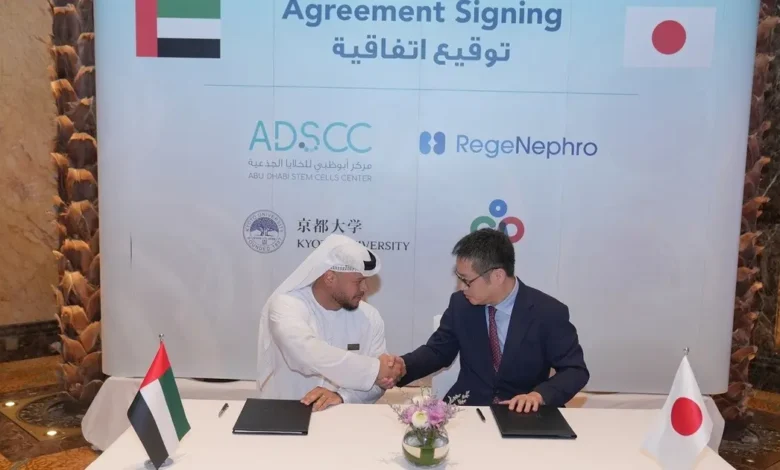Abu Dhabi Stem Cells Center sets up lab in Japan for pioneering diabetes treatment

Abu Dhabi Stem Cells Center (ADSCC) recently announced a groundbreaking joint re-search agreement with one of Japan and Asia’s top research institutions, Kyoto University – Center for iPS Cell Research and Application (CiRA), and Rege Nephro, a Japan-based biotech company that specializes in R&D and production of renal disease therapeutics.
The ADSCC is UAE’s first and most experienced stem cell transplant center, and specializes in advanced stem cell therapy, research, and regenerative medicine.
According to Mayo Clinic, stem cell therapy, also known as regenerative medicine, promotes the repair response of diseased, dysfunctional or injured tissue using stem cells or their derivatives.
The collaboration between the UAE and Japan, according to a press release by ADSCC, is poised to revolutionize diabetes care by developing a new innovative treatment using pancreatic beta cells derived from human induced pluripotent stem cells (iPS cells). The iPS cells are obtained from skin or blood cells and are then reprogrammed (genetically modified) in highly advanced laboratories to create cells that replicate the tissue affected by diabetes. To facilitate this joint revolutionary research mission, an ADSCC laboratory was launched at the premises of Kyoto University in Japan.
The joint research will focus on developing iPS cell-derived pancreatic beta cells with en-hanced therapeutic efficacy through genetic modifications, offering cell therapy options for patients with type 1 diabetes in addition to screening and testing potential drugs for type 2 diabetes to develop novel approaches for managing type 2 diabetes.
Prof. Dr Yendry Ventura, CEO of ADSCC, Adjunct Professor at UAE University, and Research Scientist, said: “This partnership serves as an ideal example of international cooperation, where our combined efforts propel us closer to achieving excellence in diabetes care for our respective populations and beyond. At ADSCC, we are on a mission to make a profound impact in the field of diabetes care and cellular therapy globally, and in pursuit of this ambitious journey, we have consciously embarked on this strategic partnership with CiRA and Rege Nephro.”
Professor Kenji Osafune, Head of the Department of Cell Growth and Differentiation at the Center for iPS Cell Research and Application (CiRA) at Kyoto University and Founder of Rege Nephro, said:” Partnering with ADSCC in this joint research will not only enable us to apply the foundational technology developed in research across the Middle East and North Africa but also establish a pivotal hub for advancing regenerative medicine research through iPS cell technology in the region. CiRA and Rege Nephro share a common mission with ADSCC to provide swift and effective treatments for diabetes, ultimately enhancing the quality of life and prognosis for patients worldwide.”
Prof. Dr Ventura added, “With the Department of Health – Abu Dhabi’s support in innova-tion and research, we believe this partnership will pave the way for transformative healthcare solutions in our region and beyond. We are also proud to have launched our ADSCC laboratory at Kyoto University premises to facilitate our mission.”
Significant global burden
The importance of this collaboration lies in addressing the significant global burden of diabetes, characterized by pancreatic beta cell dysfunction, which affects 537 million individuals worldwide. Its complications, including chronic kidney disease, cerebral infarction, and myocardial infarction, pose substantial health risks.
The prevalence of diabetes in the UAE was reported by the International Diabetes Federation (IDF) to be 16.3 percent. Research shows that diabetes has the highest regional prevalence in the Middle East and North Africa.










